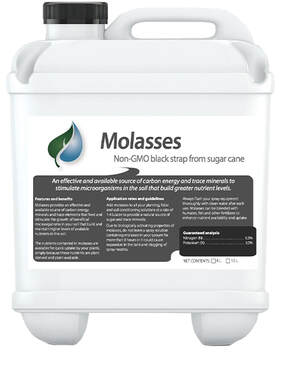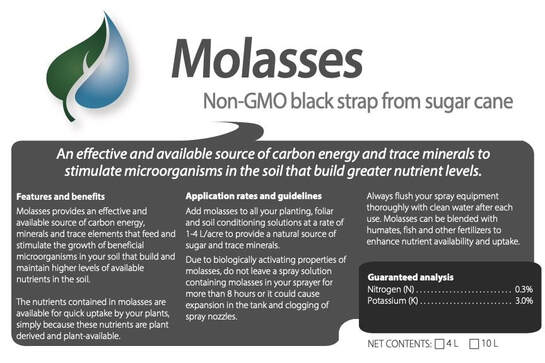Molasses
|
Not only can molasses provide a food (sugar) source for microbes, but it also contains many trace and ultra-trace minerals. This is a critical factor because a balanced and consistent supply of trace minerals is essential for microbes to survive and thrive. The micro-nutrients and other nutrients contained in molasses are available for quick uptake by your plants, simply because they are derived from a plant. This is especially important for the microbes that depend on trace minerals as catalysts in order to produce enzymes that enable critical biochemical transformations.
|
Typical AnalysisNitrogen (N) . . . . . . . . . . . . . . . . . . . . . . 0.3%
Potassium (K) . . . . . . . . . . . . . . . . . . . . . 3.0% |
BenefitsMolasses contains carbon and trace minerals to promote the health and vitality of your soil’s microbial life. It provides an effective, available source of carbon energy and carbohydrates to feed and stimulate the growth of beneficial microorganisms so your soil life will create natural soil fertility.
Molasses stimulates phosphatase bacteria that release tied-up soil phosphate and make it available to your crops. Molasses works as a chelating agent to convert the soil’s tied-up nutrients into plant-available form. Chelated minerals can be absorbed directly and remain available and stable in the soil. |



